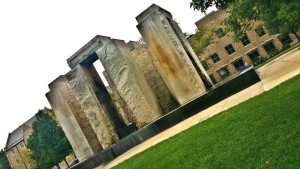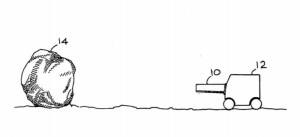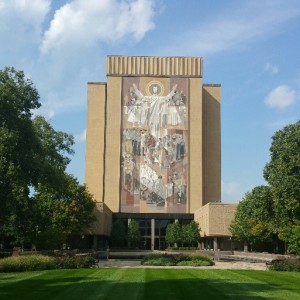A post from our student blogger Josh
I last submitted to this blog two weeks ago, regarding how classes were progressing thus far and my first impressions of transitioning to life as a Notre Dame student. Since then, we’ve had a number of seminars through our Friday “lunch and learn” program that have enlightened us as to what we could be doing with our future in patent law. We’ve thus far seen presenters from boutique intellectual property law groups, our own legal career services center, and Notre Dame Alumni who work in IP. If your life vaguely resembles mine, then you’re at the point where everyone from your closest friends to your cousin’s dog is incapable of having a conversation with you without asking “what do you want to do with your degree?” Some of us have gotten used to this line of questioning (I had to answer it all the way through undergrad, explaining that not all astrophysicists work with telescopes and not all philosophers are unemployed), but having to decide what in patent law one wants to do involves a new layer of exploration. Thankfully, thus far MSPL has done an excellent job of showing us that there are a variety of ways that one can make use of a skillset involving the analysis, authorship, and prosecution of patents.
For instance, today we had a speaker who discussed what it means to work in the field of patent searching. While we have a class on searching that meets every Tuesday and hear many anecdotes about what it’s like to professionally perform searches, it’s always nice to hear about a given profession from multiple practitioners who work in different places. Patent searches are requisitioned by a variety of groups, from universities to law firms, and from private companies to the patent office itself. Searches are performed for a plethora of reasons, and each search has to be tailored based on the technology itself and what the client desires to do with the results. This may sounds crazy to some of you, but I personally dig the idea of being a professional searcher. Think about it; our generation has been using Google since we were kids. While Google certainly isn’t the only tool in a patent searcher’s arsenal (more of a helpful companion to the databases one would actually use in a professional setting), the basic premise of manipulating a series of search terms in order to produce a handful of useful results is essentially the same. Intellectual property searches are often a key part of the knowledge basis for many decisions in the business world, and the ability to be at the front end of acquiring and presenting such information makes a neat premise for a career.
I only have a limited amount of space here to expound upon the possibilities of what one can do with a MSPL, which is why I’m certain that a few of my future posts will contain other possible career paths for those of you who chose to enroll in this program. Today my mind is on searching (and tomorrow it will likely be on the football game), but future careers as a patent prosecutor, or a research analyst for mergers and acquisitions firms, or any number of other options cross my mind frequently. I have a bio on the website here, which says that I would be interested in being a patent agent focused on mechanical technologies. However, what that patent agent will do, who he will work for, and in what capacity he will work with said mechanical technologies is still quite a mystery. However, this program has continuously shown me that there are a number of possibilities for a professional with a background in intellectual property, and I’m certain I will be able to find one that satisfies my tastes.


